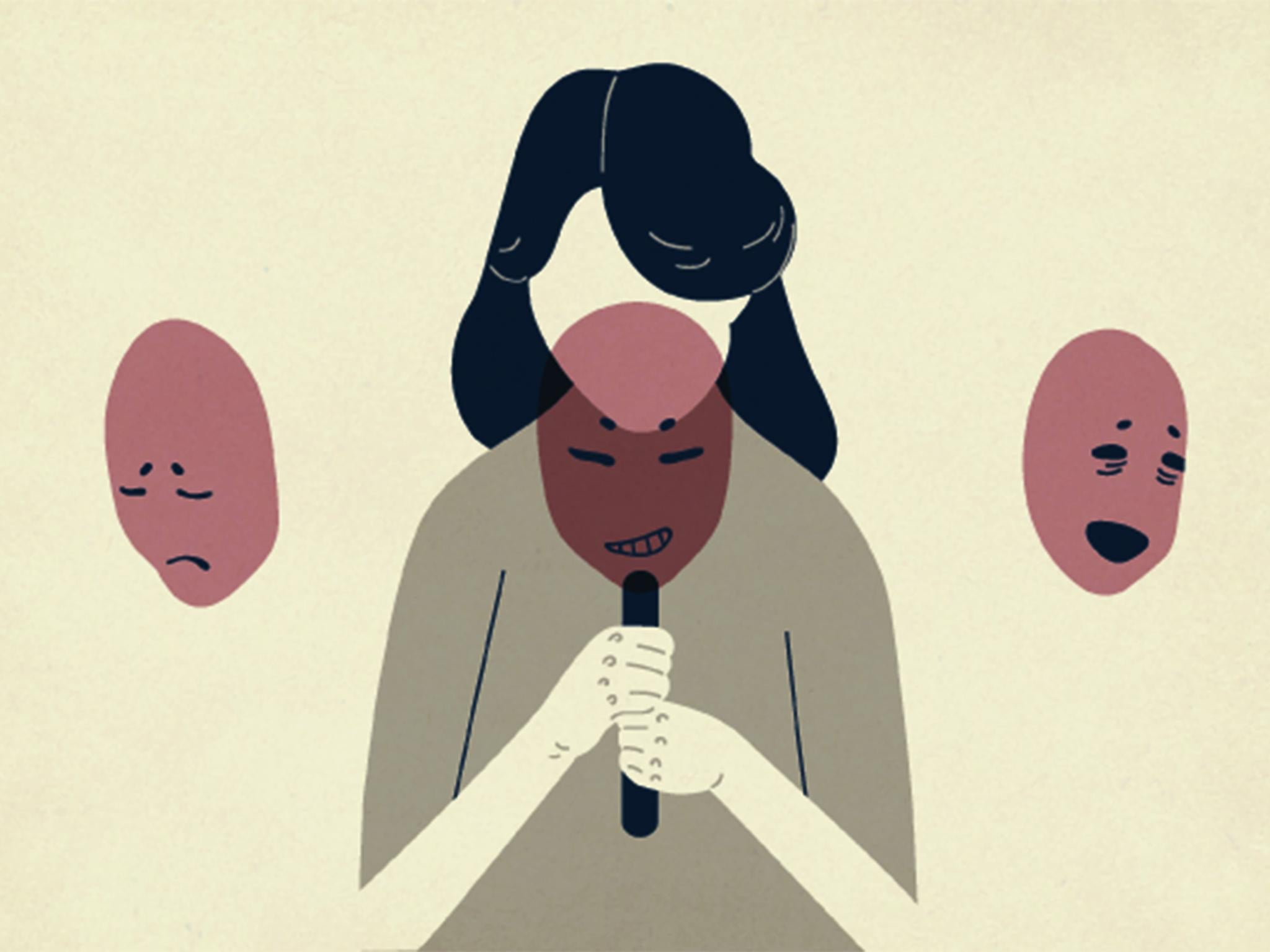The Independent's journalism is supported by our readers. When you purchase through links on our site, we may earn commission.
How can we expect borderline personality disorder patients to trust mental health services when the staff don’t trust them?
Establishing trust is a huge ask for patients who have experience damage at the hands of others. Yet we punish psychiatric patients by giving them a label that enables others to carry on treating them like dirt

I am struggling with a paradox. How come theories of borderline personality disorder (BPD) recognise that there may be good historic reasons for mistrusting figures of authority, yet brutally insist on submission to certain potentially quite toxic ideas to get any help?
Borderline personality disorder is a psychiatric diagnosis given to people who experience things like a fear of abandonment, unstable relationships, extreme emotional turbulence, rage and disconnection. As a diagnosis, it lacks scientific reliability and validity to such an extent that even psychiatric nosologists (those who classify disorders) are somewhat embarrassed that it continues to be used.
Yet this is not the only reason why so many wish to bin this label. BPD has always been a synonym for the “difficult patient” in psychiatric speak. It is connected with terms like “attention-seeking” and “manipulative” which allow staff to paint a picture where patients “wilfully” pit people against one another. People who have been diagnosed with BPD are positioned as too sexual, too clever and too aware of their actions to deserve care, interest and respect.
BPD is all too often experienced as a dustbin diagnosis by patients, staining on one’s entire personality and reinforcing early messages from outside that one is unlovable, wrong, defective or too much. Nothing could be less true of the brave and brilliant people I know personally and professionally with this diagnosis, all of whom are survivors in every sense of the word.
They are survivors because many of them are struggling in life after traumatic early experiences such as childhood sexual abuse or, say, having been bought up by an adult with a narcissistic parenting style, who used the child as a plaything to enact his or her own wishes and punished any attempts the child made to develop him or herself as distinct. These kind of childhood experiences – and a thousand others including sociocultural ones such as that of misogyny – leave the soul locked in a psychic tumble dryer desperate to get the cycle to stop but unsure how.
Psychiatric theories and treatments of BPD emphasise that escaping such pain is possible through restorative, healing, interpersonal experiences in psychotherapy, changing the landscape of one’s inner world. Treatment protocols emphasise that this takes time and skill given the need to establish something some theorists call “epistemic trust". This is the capacity to feel safe enough to take in knowledge and experience new ways of relating to one’s therapist.
Establishing trust is a huge ask for most patients who have been damaged by others – be that patriarchal culture, parents or other figures of authority. I have yet, 25 years into my career, to meet any patient whose defences in relation to the other – be that dissociation, attacking, freezing, befriending or ridiculing – are not understandable. With the life histories most psychiatric people have, it is logical to presume these interactional patterns will continue and that the other, in this case psychiatric services, may harm, misrecognise or abuse the sufferer or find it impossible to bear them and disappear. Yet we punish psychiatric patients for these all too understandable reactions by giving them a label that enables others to carry on treating them like dirt, while doubling our blaming on patients for not willingly submitting with gratitude.

As I have written out before, the diagnosis of borderline personality disorder incurs what the philosopher Miranda Fricker called an “epistemic injustice“. With BPD, this means that the character of the speaker – the patient – is slurred and written over with the word “disorder” such as to affect how their speech and actions are interpreted. When survivors try to transmit this fact to staff, it is often considered to be “projection”. However, the literature here is clear as day and firmly on the side of survivors. Psychiatric staff demonstrably move away from and feel less emotionally connected with people who have been given this label.
It is paradoxical, surely, to expect patients to open themselves up to new, more trusting ways of relating to the other if the other proves themselves untrustworthy by only allowing access to such spaces via accepting an ideology that positions the patient as less credible as a speaker. Is it any wonder patients kick off when placed in such a double bind?
To move forward we must ensure as a first priority that mental health services are trustworthy. And to do this, we must listen to survivors who have been telling us for decades now that the diagnosis of borderline personality disorder is an irreversible stain on the soul. Otherwise, how can we expect people to to trust us at all?
Dr Jay Watts is a clinical psychologist based in London
Join our commenting forum
Join thought-provoking conversations, follow other Independent readers and see their replies
Comments
Bookmark popover
Removed from bookmarks